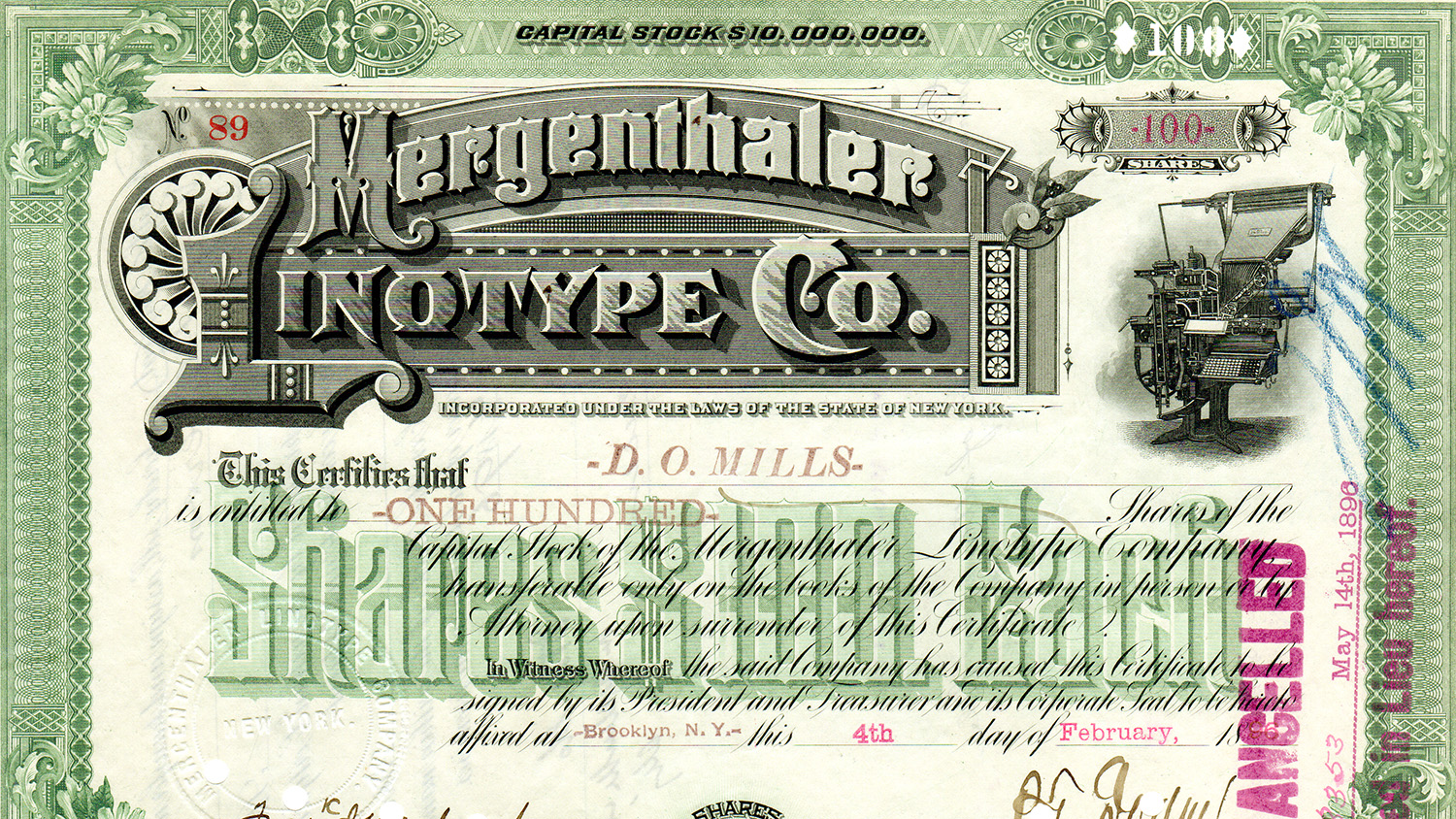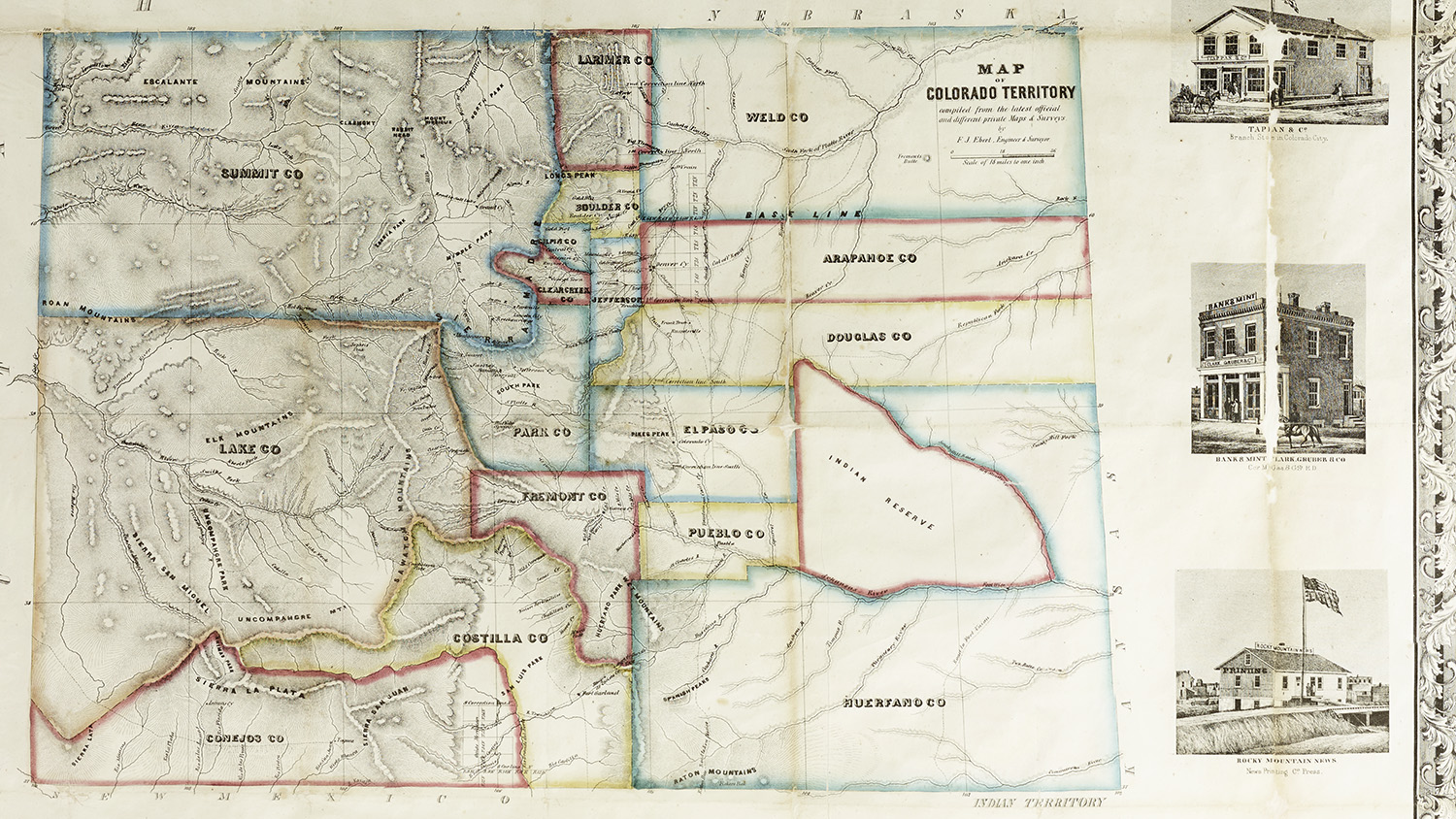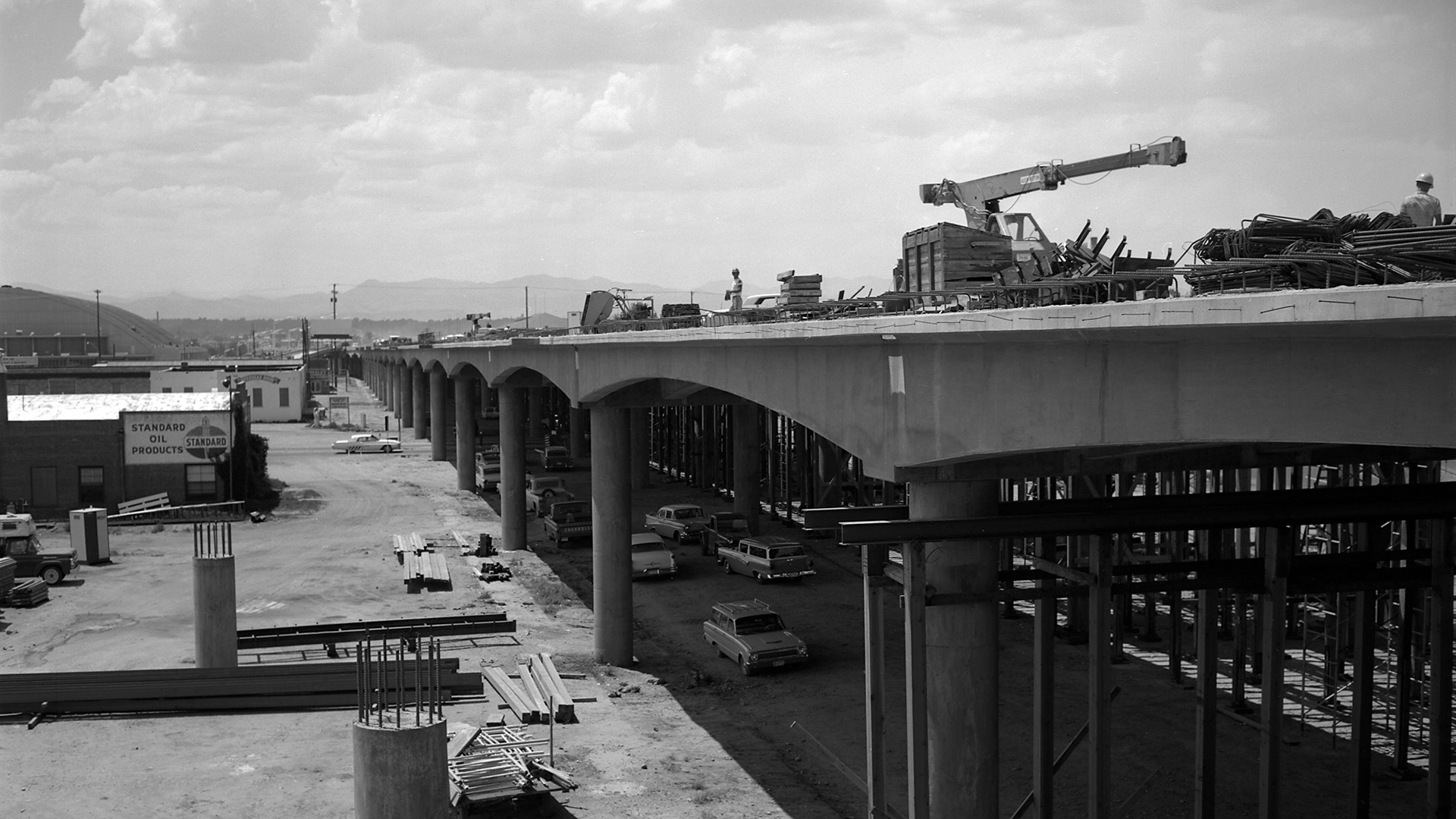
Divided Highways
Learning about the full history of the U.S. Interstate Highway System
Published: 29 Apr 2021
Topics: History, Travel
TL;DR: As with many things in America, the history of our greatest achievements is complicated and baised
Asking Questions
As things so often happen these days, it started with a tweet.
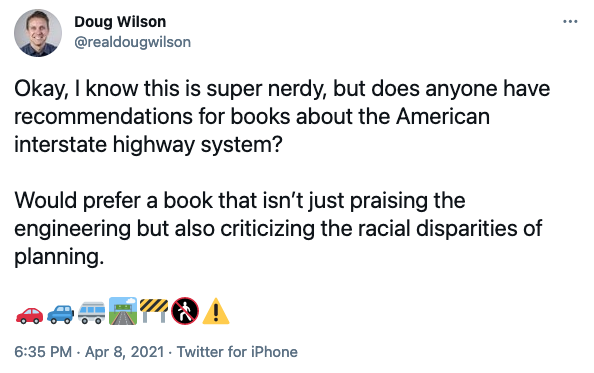
After reading the fantastic book The Color of Law by Richard Rothstein which focused on the racist laws and loan-guidence maps created to keep people of color out of certain parts of cities all across the United States, I started looking into the history of zoning in Denver.
Soon after, I learned about the neighborhoods of Globeville and Elyria-Swansea which were split in half by Interstates 25 & 70, just north of downtown Denver. As is often the case, these two neighborhoods were (and still are) largely minority neighborhoods.
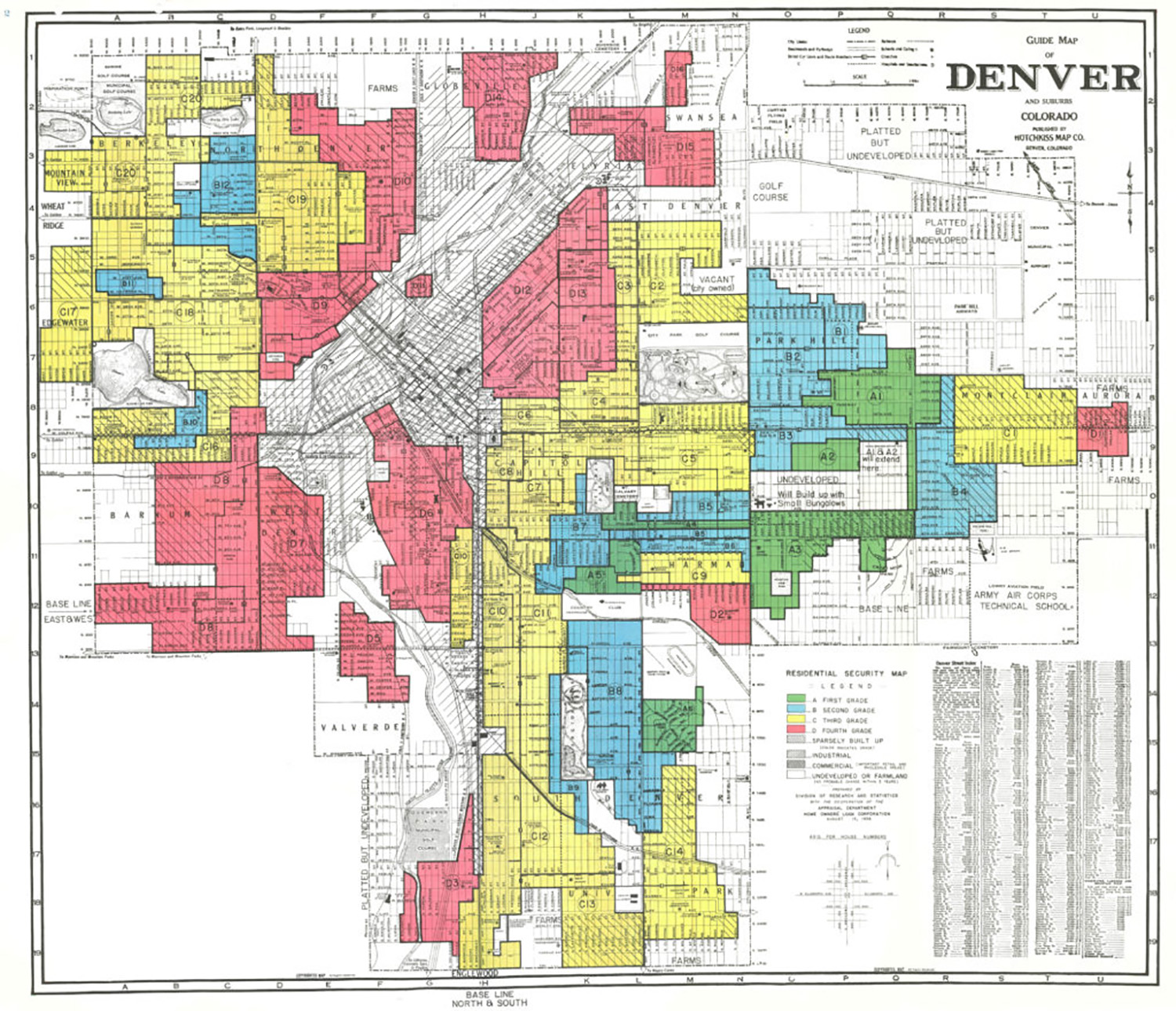
Although I have not yet done the research, I suspect that the placement of the interstates through these neighborhoods was not just based on logical routing, but has to do with redlining in Denver and lack of political power during planning and construction of the interstates in the early 1950s and ’60s.
Resources Shared with Me
Although Twitter can be a hellscape of vitriol; if you find the right community of people interested in the same thing it can actually be quite useful. Because threads and replies are difficult to follow, I’m creating this list of resources that were shared with me.
- This recently-broadcast NPR story featuring Deborah Archer which lead me to her paper entitled ‘White Men’s Roads Through Black Men’s Homes’: Advancing Racial Equity Through Highway Reconstruction.
-
The 1619 Project story by Kevin Kruse about traffic jams in Atlanta.
-
The all-too-common story about the Rondo neighborhood in St. Paul, Minnesota was shared with me and I’ve since read about it in several of the books below. Currently, ReConnect Rondo is advocating for a new land bridge to be built over I-94 to build a better future for their neighborhood.
-
There is an ongoing series of posts on the Metropole: The Official Blog of the Urban History Association which goes deep on many different perspectives and cities.
-
This article about the city where I was born gives so much insight into the exact wrong way to build highways: “Kansas City’s Blitz”: How Freeway-Building Blew Up Urban Wealth
Books I’m Reading

The Big Roads by Earl Swift
I’ve only started the first few chapters, but this seems like a well-balanced book that includes an entire section (strangely entitled “The Human Obstacle”) which goes in-depth about the planning and construction of Baltimore’s US Hwy. 40 and I-70 (which I just learned ends/begins in a parking lot?!.
The Folklore of the Freeway by Eric Avila
If there was only one book that I would recommend, it would be this, but it certainly veers towards being academic-to-the-point-of-wanting-to-stop-reading. It is well written, but dense, which is shown in this single sentence (!) that I read last night:
“How to reconcile this white neighborhood uprising with the simultaneous crisis of race and poverty in the inner city remains a historiographic riddle, for fighting freeways did not entail a concomitant struggle against the entrenchment of urban racial poverty, it did not challenge the new patterns of racial segregation enacted by highway construction, and it did nothing to secure a more equal footing for African Americans and other peoples of color in the political geography of the city.”
That being said, I do think this is a very well-researched book and I can already tell that it is worth perservering through to the end.
Divided Highways by Tom Lewis
I’ve not yet received this book from the library, but this blurb from Publishers Weekly seems like a good enough reason to pick it up:
“This brightly written history of the U.S. federal highway program is like the annual report of a successful company that has had grim second thoughts. The first half recounts progress made, while the second suggests that the good news is not quite what it seems.”
In the Shadows of the Freeway by Lydia Otero
This book was sent to me directly by Lydia and I’m looking forward to reading the personal memoir of someone who experienced the changes that an interstate brought to their neighborhood firsthand.
Other Books Recommended to Me
-
The Power Broker by Robert Caro (I’ve tried to read this book on three different occasions and could never finish it!)
-
The Death and Life of Great American Cities by Jane Jacobs (I skimmed through this book six months ago, but I should try again)
-
The City in History by Lewis Mumford
-
Bulldozer: Demolition and Clearance of the Postwar Landscape by Francesca Russello Ammon
-
People Before Highways by Karilyn Crockett
-
Right of Way by Angie Schmitt
Much More to Learn
As with any good rabbit hole, the more I learn; the more I want to learn. I’m not a urban-planning nut nor do I have strong views on modernist city planning after World War Two, but I am curious about the built world around me.
Right now, there is a new I-70 project going on in Denver that is trying to repair (to a tiny degree) the disruption of Globeville and Elyria-Swansea and this attempt to unite a long-divided neighborhood is interesting to me.
For now, I just need to find time to watch the 1997 documentary film Divided Highways: The Interstates and the Transformation of American Life by the author who wrote the book mentioned above.
